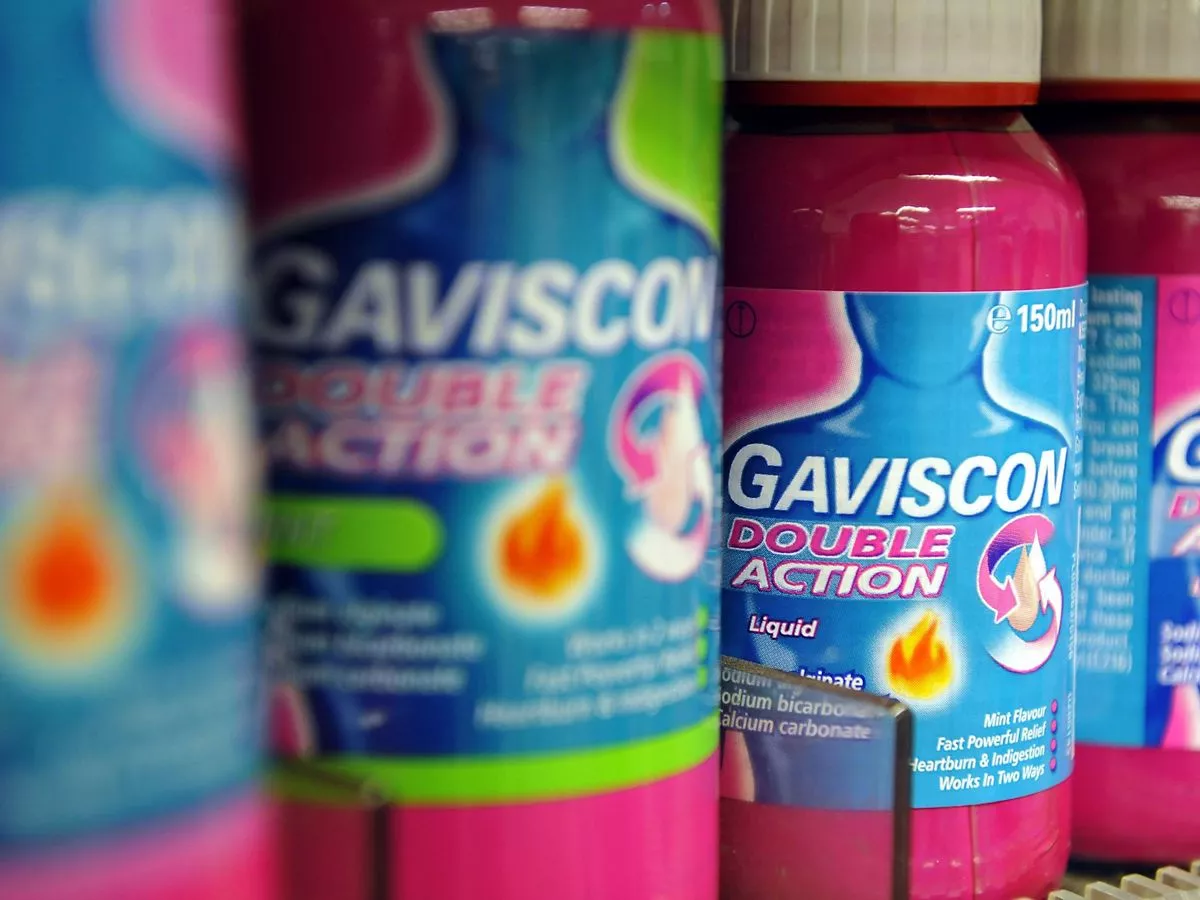Copyright walesonline

The phenomenon known as shrinkflation is adding strain to household grocery budgets, with items such as coffee, toothpaste and even Gaviscon decreasing in size, according to consumer group Which? Which? asked shoppers to share some of the most egregious examples of shrinkflation they had encountered at supermarkets recently, discovering that not only are products getting smaller, but others are being downgraded with cheaper substitute ingredients. One example was Aquafresh Complete Care Original Toothpaste, which saw a price increase from £1.30 for 100ml to £2 for 75ml at Tesco , Sainsbury's and Ocado, representing a 105% rise per 100ml. Bottles of Gaviscon Heartburn and Indigestion Liquid have shrunk from 600ml to 500ml, while at Sainsbury's the price remained at £14, equating to a 20% increase per 100ml. Which? also discovered that Sainsbury's Scottish Oats have decreased in size from 1kg to 500g, while the price has risen from £1.25 to £2.10, a staggering 236% increase per 100g. Nescafe Original Instant Coffee has reduced in size from 200g to 190g at Tesco, Morrisons and Asda , resulting in a 5% increase per 100g. Shoppers reported numerous instances of entire chocolate bars missing from multipacks, as the cost of the confectionery's raw ingredients skyrockets. In one instance, Which? found that KitKat Two-Finger Milk Chocolate Bar multipacks had dropped from 21 bars to 18, while at Ocado the price also increased from £3.60 to £5.50, a significant 53% jump. The watchdog warned that shoppers planning to buy chocolate tubs for the festive season may notice lighter boxes this year. Quality Street chocolate tubs have shrunk from 600g to 550g, while the price for the smaller tub at Morrisons has risen from £6 to £7 this year. In addition, Cadbury's multipacks of Freddo and Fudge bars have both decreased from five bars to four at Morrisons, Ocado and Tesco, despite the price of £1.40 remaining the same. The Terry's Chocolate Orange Ball Toffee Crunch has maintained its price of £2, but the size has been reduced from 152g to 145g at Tesco, a 5% increase. Not only are products getting smaller, but Which? has also received reports of some of the nation's favourite treats missing key ingredients as manufacturers find ways to cut costs. Which? discovered a reduced amount of cocoa butter, now less than 20%, in White KitKats, meaning they can no longer be marketed as a white chocolate product. This follows McVitie's favourites including Penguin and Club bars now containing more palm oil and shea oil than cocoa, meaning they can no longer be lawfully sold as a chocolate biscuit. McVitie's white digestives do not contain any cocoa butter at all and so can also not be marketed as a white chocolate biscuit. Which? Retail editor Reena Sewraz said: "Households are already under immense financial pressure with food bills inching up and the expense of Christmas looming on the horizon, so it can feel especially sneaky when manufacturers quietly reduce pack sizes or downgrade key ingredients. "Supermarkets must be more upfront about their prices so that it's easy to see what the best value is. "This includes ensuring that their unit pricing is prominent, legible and consistent in-store and online to help customers easily compare costs across different brands and sizes of packaging – that way shoppers can be more confident they're getting the best value." A representative for Mondelez International, the company behind Cadbury products, stated: "We understand the economic pressures that consumers continue to face and any changes to our product sizes is a last resort for our business. "However, as a food producer, we are continuing to experience significantly higher input costs across our supply chain, with ingredients such as cocoa and dairy, which are widely used in our products, costing far more than they have done previously. "Meanwhile, other costs like energy and transport, also remain high. "This means that our products continue to be much more expensive to make and while we have absorbed these costs where possible, we still face considerable challenges". "As a result of this difficult environment, we have had to make the decision to slightly reduce the weight of our Cadbury Fudge and Cadbury Dairy Milk Freddo multipacks so that we can continue to provide consumers with the brands they love, without compromising on the great taste and quality they expect." A spokesperson for Nestle commented: "Like every manufacturer, we have seen significant increases in the cost of coffee, making it much more expensive to manufacture our products. "As always, we continue to be more efficient and absorb increasing costs where possible. "To maintain the same high quality and delicious taste that consumers know and love, it has sometimes been necessary to make adjustments to the weight or size of some of our products. "Retail pricing is always at the discretion of individual retailers." Regarding the White KitKat, he added: "Like every manufacturer, we've seen significant increases in the cost of cocoa over the past years making it much more expensive to manufacture our products. "As always, we continue to be more efficient and absorb increasing costs where possible. "To continue to offer shoppers great value, it is sometimes necessary to adjust recipes of some of our products. "Retail pricing is at the discretion of individual retailers." A spokesman for the Food and Drink Federation said: "Cocoa prices rose sharply last year, reaching a 45-year high. "Alongside other rising costs, such as national insurance increases and a new packaging tax, manufacturers are paying nearly 40% more for ingredients and energy than they were in January 2020. "As a result, in some cases food manufacturers will have had to make changes to products to continue offering shoppers the food and drink they love at reasonable price points."



